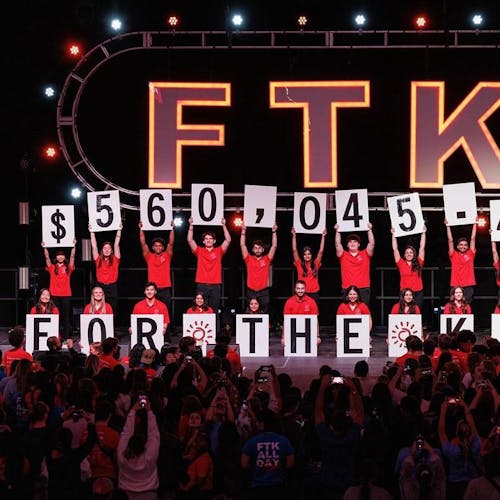Mixtape madness: Staying relevant in music streaming age

In the era of streaming, quantity seems to take priority over quality, especially when an artist is coming up in the industry and wants to create traction in their young career.
Artists typically resort to releasing multiple singles and albums a year at the expense of sacrificing quality releases. This business model typically expands revenue for the artist due to the multitude of songs available to stream, but these songs are typically rushed and do not showcase the artist in the best light.
As a fan of the artist, you may know that the artist can release better music than what you’re listening to.
The difference between a mixtape and an album is an important distinction in the era of mixtapes, and one that seems to confuse most music listeners. A mixtape is a compilation of songs created by an artist which they think people would appreciate the most. They are typically versatile and showcase the artist in the best light.
Mixtapes are usually less professional than albums and serve primarily as entertainment rather than an artistic statement or conceptual idea. An album is a professional release of music by an artist which typically explores a certain theme or topic. An album’s primary purpose is to make a profit for the record company and the artist.
This phenomenon of releasing is especially prevalent in rap music, in which underground artists release multiple mixtapes a year in order to generate buzz and kickstart their career. Instead of spending time honing their craft into a single product that can single-handedly catapult their career into stardom, most rappers create and release mixtapes as quickly as possible in order to stay relevant.
Gucci Mane, for example, released eight mixtapes in the span of two years, with four of them being released in 2009 alone.
Famed producer Dr. Dre seemingly confirmed this sentiment in a Beats 1 Radio interview with Jimmy Iovine. While talking to Iovine, he said “Right now, I have to really, really search hard to find something that I really like, as far as hip-hop goes ... Right now, it feels like it’s a little more quantity over quality. 'Made a song last night, I need to put it out tomorrow.'”
Dr. Dre is a credible force in music, and his influence and foresight over the industry confirm the trend of instant gratification that artists often prefer over longevity.
This model is not prevalent with all artists. Popular artists such as Taylor Swift or Ed Sheeran are signed to a label, which dictates what the artist can create and when they should release their songs to the public. This is a more structured and streamlined approach, but these popular artists typically do not have as much creative freedom over the music they create, and have to adhere to their label’s ideas of what is acceptable for them to put out.
This medium has benefits and drawbacks. By releasing multiple projects a year, an artist can continue to stay relevant in the era of streaming and build a brand and case for themselves to labels and venues. They can increase their collaborations and optimize their workflow in order to create as much as possible.
On the downside, their songs often aren’t up to par with an artist that spends a year or two working on an album. The difference in production, creativity and artistic value is obvious.
Generally speaking, an artist who works on an album for a year will sound better than an artist who puts out three mixtapes in a year. They can also spend more time creating a product they are happy with, and typically pleases their fans and admirers more with their music.
While the lack of writers, engineers and equipment may hinder less popular artists, they can still create a beautiful and well-developed finished product without expensive equipment.
Steve Lacy, for example, produced his six-track demo solely on his iPhone, and through meticulous branding and a strong network, he’s secured features with Kali Uchis, Tyler, the Creator and other influential artists.
Albums and mixtapes serve different purposes in music, and it's up to the fans of the artist to see how they respond to these alternative projects. Whether you prefer quality over quantity, both business models create profit and cater to benefiting the artist.



